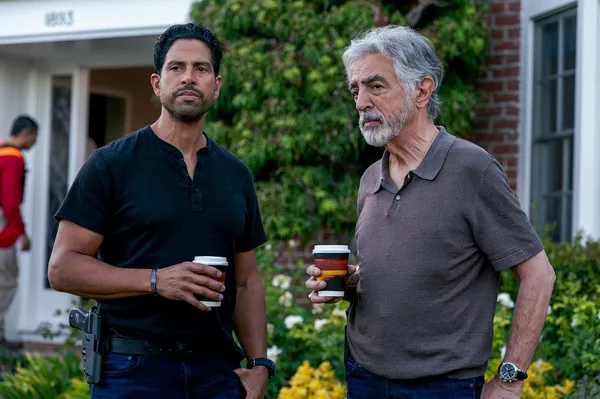Four CEOs will return to SAG-AFTRA headquarters on Tuesday with a new offer they hope will break the stalemate in the actors’ 102-day strike.
Among them will be Disney’s Bob Iger, who on Saturday called SAG-AFTRA’s chief negotiator, Duncan Crabtree-Ireland, to invite the actors back to the table.
The CEOs – who also include Warner Bros. Discovery’s David Zaslav, Netflix’s Ted Sarandos and NBCUniversal’s Donna Langley – are eager to reach a deal as soon as possible in the hope of salvaging next summer’s box office and part of the 2023-24 TV season.
On Monday, Paramount announced it was delaying the next Mission: Impossible instalment from June 2024 to May 2025. Further delays could follow if the strike is not resolved soon.
Iger’s call lifted the spirits of SAG-AFTRA’s leadership, who saw it as confirmation that the union has the leverage to win a transformative deal.
“We have the wind at our backs,” said one union source.
In an interview, Crabtree-Ireland said he too was optimistic.
“You can’t make progress without talking,” he said. “Having them in the room is important. If that’s accompanied by significant movement on key issues, that’s even better.”
The union wants protection for artificial intelligence and an 11% increase in the basic minimum wage. But the key obstacle remains SAG-AFTRA’s demand for a share of streaming revenues.
Talks broke down on 11 October after the union proposed a 57 cent per subscriber fee on all streaming platforms, which would cost the studios around $500 million a year. The Alliance of Motion Picture and Television Producers said this would be an “unsustainable economic burden”.
Fran Drescher, the president of SAG-AFTRA, has argued that the dramatic shift in the entertainment business model requires a dramatically improved compensation structure.
Actors received $91.7 million in residuals from streaming in 2019 – more than they earned from network reruns, but less than the amount they received from basic cable or pay-TV channels like HBO and Showtime. The union received an increase in 2020, and the total grew to about $126 million in 2022, according to the union.
The CEOs have already agreed to increase that figure again to account for foreign subscribers, and have also offered a viewership-based residual, modelled on the deal reached with the Writers Guild of America.
The latter would pay about $20 million a year, SAG-AFTRA said. The union has said this is far too low and that the deal negotiated by the WGA will not be enough for the actors.
The CEOs are expected to present their new offer on Tuesday, which is believed to be a significant improvement on the previous proposal.
Although talks have been suspended for almost two weeks, the two sides are still working on elements of the contract. The AMPTP submitted a response to AI last Thursday.
The union wants to establish minimum conditions for the use of AI, including compensation and consent. The union also wants to limit the training of AI on actors’ work. The WGA also sought to ban such training, but did not get that provision.
On the studio side, there is hope, if not optimism, that an agreement can be reached soon. The CEOs have been frustrated with Drescher, who has spoken in the negotiating room about income inequality and her ambition to change the lives of actors.
“It seems to me that they’re more concerned about their own legacy than ending the Hollywood disaster that’s completely within their control,” said Jeff Ruthizer, a longtime senior VP of labour relations at ABC and the author of a memoir called “Labor Pains”. “They can’t figure out how to end it gracefully and declare the victory they’ve already won.”
The upbeat mood in the actors’ camp marks a change from last week, when the leadership faced pressure from George Clooney and other high-profile members to reach a deal, as well as backlash on social media over guidelines restricting members’ Halloween costumes.
No one expects a deal to be reached on Tuesday, even in the best of circumstances. With dozens of outstanding issues, it could take days or even a week or more to reach a comprehensive agreement.
The union is seeking an increase in the cap on pension and health contributions, a page limit on self-taped auditions and many other items, including a dry-cleaning stipend for background actors.























